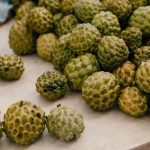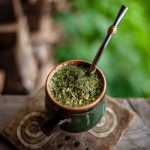The health benefits of eucalyptus tea (and how to make it)
The diverse world of herbal teas can be quite fascinating, each with its own unique flavour profile and potential health benefits. Among these, eucalyptus tea stands out as a captivating drink with medicinal properties and a refreshing aroma.
Its scientific name is Eucalyptus globulus and its leaves are the part most commonly used to make tea, essential oils, inhalation or flavourings.

Eucalyptus: A brief history and significance
Eucalyptus is a genus of more than 700 species of flowering trees native to Australia, Tasmania and New Guinea. They are known for their distinctive menthol aroma and their ability to produce abundant quantities of essential oils.
Eucalyptus has a long history of use in medicine, dating back to ancient civilisations. Indigenous Australians have long used eucalyptus leaves for their medicinal properties, including their ability to treat respiratory infections and relieve skin diseases.
The medicinal use of eucalyptus
In addition to their intense perfume, eucalyptus leaves are rich in essential oils – including cineole, which is known for its antibacterial, anti-inflammatory and expectorant properties.
In folk medicine it has become a favourite ingredient for “steam baths” and a natural remedy for respiratory health, colds and flu and is increasingly being used as a complementary therapy to conventional medicine. Cineol, a compound found in eucalyptus, has expectorant, mucolytic and anti-inflammatory properties. These properties help to stimulate breathing, relieve coughs, increase the elimination of phlegm and relax the respiratory muscles.
The skin also benefits from eucalyptus tea, which, used as a tonic, helps soothe skin irritations such as eczema and rashes. Eucalyptus essential oil is particularly effective for treating superficial, closed wounds such as burns, cuts or scratches. Its antiseptic, anti-inflammatory and antibacterial properties help speed up healing and prevent infections. These same properties can act as analgesics, relieving pain.
Eucalyptus can also help improve oral health, used as a mouthwash, by helping to eliminate harmful bacteria from the mouth and helping to treat bad breath. Also in the field of oral health, eucalyptus can be a powerful aid against cold sores by reducing itching, redness and swelling, and speeding up healing.

How to make eucalyptus tea
There are a few different ways to prepare eucalyptus tea. One simple method is to steep dried eucalyptus leaves in hot water for 5-7 minutes. Use high-quality dried leaves and drink 2-3 cups of tea a day. You can add honey or sweetener to taste if you wish, and the tea can be drunk hot or iced.
How to make a eucalyptus steam bath
Inhaling eucalyptus vapour is a powerful ally in nasal decongestion. To prepare a eucalyptus steam bath, simply boil 1 litre of water and add a handful of eucalyptus leaves to a basin or equivalent container. They can be dried or fresh.
To enhance and better direct the steam, simply lean over the steam and cover your head with a towel or similar. The towel should also cover the basin, creating a barrier so that the vapour doesn’t dissipate. Inhale deeply until you feel better. Do not exceed 10 minutes of inhalation. At the end, wipe your face with a damp towel dipped in cold water. Repeat 2-3 times a day.
You’ve realised that eucalyptus is a powerful weapon against many problems, so what are you waiting for?








Sorry, the comment form is closed at this time.